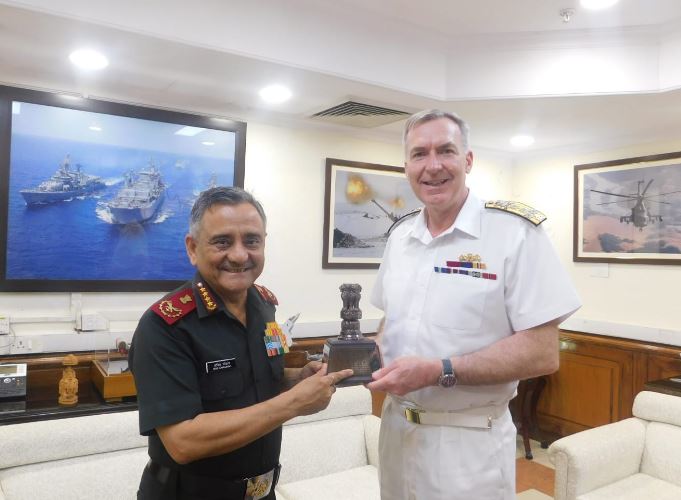London: The UK Monday described India as a “valued defence partner” and noted that both countries are committed to the stability and prosperity of the strategic Indo-Pacific region.
UK Defence Secretary Ben Wallace made the statement to coincide with the visit of the Chief of the Defence Staff, Admiral Sir Tony Radakin, who arrived in New Delhi Monday at the start of a three-day visit.
Admiral Radakin is in India for a series of high-level meetings to build on the momentum towards enhanced strategic ties between the two countries.
Ahead of his meetings in New Delhi, UK Defence Secretary Ben Wallace said: “India is a valued defence partner for the UK and our relationship continues to flourish across our research and industrial sectors.”
“Both our nations are committed to the stability and prosperity of the Indo-Pacific and we continue to train and operate alongside our Indian partners to promote security in the region,” he said.
According to the British government’s statement, during Radakin’s visit to New Delhi, he will meet India’s Chief of Defence Staff General Anil Chauhan and also hold discussions with the Chief of the Naval Staff, Admiral Hari Kumar; Chief of the Army Staff, General Manoj Pande; Defence Secretary Giridhar Aramane, and Additional Secretary Defence Production T Natarajan.
Over the next two days of his visit, Admiral Radakin will be hosted by various establishments of the Indian armed forces across the country, with a view to boost “military-to-military engagement and explore opportunities around the co-creation of future technologies”.
“My visit to India reflects the United Kingdom’s belief that our security is indivisible from that of the wider world. As a global trading nation it matters to the UK that the Indo-Pacific is open and free, which is why the British Armed Forces are establishing the broadest and most integrated presence in the region of any European nation,” said Admiral Radakin.
“India and the UK are natural partners in a world that is becoming more contested and volatile. We share many of the same democratic instincts and values and are both committed to the rule of law. We are respected military powers, both undergoing significant investment and modernisation, and exercising together across, land, sea and air. But we can do more,” he said.
Admiral Radakin added that he valued the opportunity to meet General Chauhan to discuss how to develop the defence partnership in a way that promotes mutual security and prosperity.
The British government said the UK and India share a strong and enduring defence relationship, including research, development and training collaboration.
It noted that discussions around industrial collaboration in the aerospace sector have been progressing following the signing of an updated memorandum of understanding (MoU) in 2019, with the UK’s Minister for Defence Procurement visiting in February and the First Sea Lord visiting in March.
The visit of the UK Chief of Defence Staff also coincides with the visit of the Chief of the Air Staff (CAS) of the Royal Air Force, Air Chief Marshal Sir Mike Wigston.
The visit of two of the senior-most officers of the UK’s armed forces exemplifies the importance with which the UK holds its defence and security partnership with India, the UK government added.
The Royal Navy, British Army, and Royal Air Force are all carrying out exercises with their Indian equivalents this year, developing interoperability and joint tactics.
In recent weeks, HMS Lancaster visited Kochi to train alongside the Indian Navy as part of Exercise Konkan, while five Mirage 2000 fighters were flown by Indian Air Force pilots in the Royal Air Force’s largest aerial exercise in the UK – Exercise Cobra Warrior.
Later this month, soldiers from the Indian Army will deploy to the UK to participate in Exercise Ajeya Warrior, training alongside the British Army.
PTI
